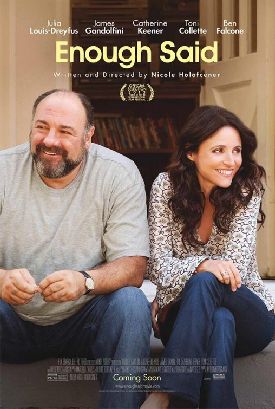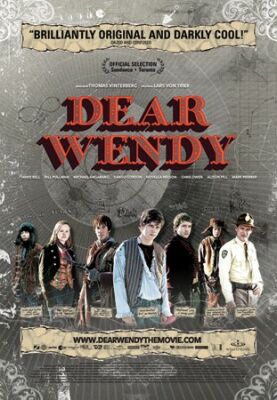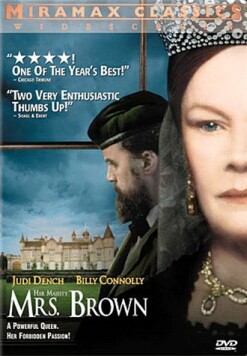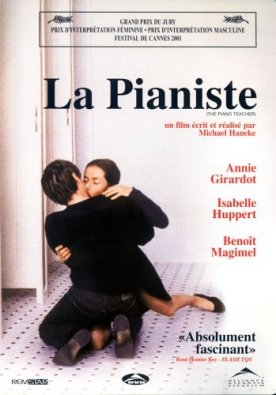Enough Said
Nicole Holofcener makes little movies about “relationships” and the anxieties of young to middle-aged women in a post-feminist, upper-middle class world where sex-defined social roles have become more or less impermissible. Her heroines must therefore live with a constant sense of anxiety that they are not living up to their lightly held feminist principles by continuing to look for love, to worry about their looks and by not being sufficiently self-defining. In such earlier pictures as Lovely and Amazing (2001) Friends with Money (2006) and Please Give (2010) she managed to tell funny and often charming stories of such women with few hints of any ambition to make a larger statement, either about feminism, its impact on society or the human condition generally — or at least not more than could be contained in one of the TV sit-coms she sometimes writes or directs in between movies. In her latest film, however, and even though she is ostensibly sticking pretty close to her formula and to female troubles, there are signs that she may be reaching for something bigger and more mythic.
In fact, the new picture, Enough Said, could be seen as a hip, updated version of the Adam and Eve story. You remember, the one in the Bible? Book of Genesis? Ring any bells? Julia Louis-Dreyfus plays Eve (or Eva as she is called here), an itinerant masseuse in Los Angeles. Divorced with a daughter, Ellen (Tracey Fairaway), about to go off to college, this Eva meets her Adam in the hulking shape of Albert, played by James Gandolfini in one of his last screen roles. At the same party she meets a new client, Marianne (Catherine Keener), who turns out to be the serpent in their garden, tempting her with something which is much more irresistible than a piece of fruit but which has definitely come straight off the tree of Forbidden Knowledge. And, like her namesake, Eva falls.
Looked at in this way, there is a lovely irony in the fact that the fruit of the tree of the knowledge of good and evil turns out to be nothing but the sort of facile “relationship” chatter in which Miss Holofcener’s own movies, including this one, ordinarily specialize. For Marianne is Albert’s ex-wife — as Eva soon realizes when the girl-talk between them takes the form of gossip about and animadversions upon Marianne’s ex-husband. Marianne, who doesn’t know that Eva is now dating him, is delighted at the sympathy of her new confidante, and Eva, instead of rejecting her confidences as even she knows she ought to do, eagerly laps them up. “I don’t have anybody to bitch to,” says the suspiciously friendless Marianne, a poet, to her new gal-pal.
“You can totally bitch to me,” replies Eva.
For her the temptation of knowing the secrets of Albert’s marriage — little things which, though not scandalous, he would presumably not want her to know — promise her an advantage in the struggle for moral superiority that their relationship, like that of her own bickering best friends Sarah (Toni Collette) and Will (Ben Falcone), soon becomes. In fact, of course, it poisons that relationship. After a dinner at Sarah and Will’s, a puzzled Albert remarks that it is as if he had spent the evening with his ex-wife. It would have been a good opportunity for Eva to come clean and to recognize her own fault, but she cannot bring herself to do it. When Albert finds out about the intimacy between the two women, as he was bound to do eventually, their own is accordingly destroyed.
Or not. For the lightweight comedies of manners in which Miss Holofcener specializes will not bear anything like a tragic weight, let alone the vast avoirdupois of a mythic retelling of the Fall of Man. This Eve remains essentially the same character she was when she was Elaine of “Seinfeld,” who in one episode wrecked a relationship by stopping to buy some jujubes when her boyfriend was being rushed to the hospital. We need to know that her sin, whatever it may be, is nothing to worry about, really — any more than it is when Eva temporarily damages her relationship with her daughter by becoming too intimate with her daughter’s best friend, the needy Chloe (Tavi Gevinson). That’s what girl-talk is all about, after all: women reassuring each other that they are still lovely and amazing and that all will turn out for the best. Who needs mythology or good and evil when sin is merely a social faux pas, and you can laugh at and ultimately transcend your own embarrassment at making it?
Discover more from James Bowman
Subscribe to get the latest posts to your email.







